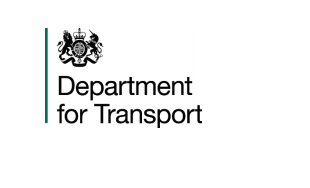Government plans to increase the first MoT date from three to four years have been called unnecessary and damaging to consumers.
The Department for Transport (DfT) wants views on whether the age a vehicle gets its first MoT should be increased from three to four years.
It says the plans could save motorists more than £100 million a year.
The Retail Motor Industry Federation (RMI) is warning motorists that the proposed changes will be more detrimental to consumers.
The DfT is proposing three options:
Option one: No change, maintain the current period for vehicles requiring a first MOT at three years.
Option two: Extend the first MOT for all vehicles currently requiring an MOT at three years, to four years.
Option three: As option two, excluding vans in classes 4 and 7, where it will maintain the current MoT three year first test timing.
The Government preference is for either option two or three.
However, the RMI is strongly in favour of option one.
"Seriously outweighed by the pitfalls"
Stuart James, RMI director, said: “This is an unnecessary consultation and there are a number of reasons why the benefits promoted by government are seriously outweighed by the pitfalls.
At the three year period alone this change will see 400,000 unroadworthy cars on the road for another 12 months and no official mileage recorded until year four.
“Although modern cars are better built than ever before, factors such as the condition of Britain’s roads combined with high mileages mean that modern cars should be checked more often but in many cases go for many months or even years without being seen by an industry professional.
“This proposal would, without doubt, cost consumers more in repair costs, incentivise “clockers” and be detrimental to the UK’s excellent road safety record for no particular gain.”
The Government is consulting on the plans which will bring England, Scotland and Wales in line with Northern Ireland and many other European countries including France, Ireland, Italy, Spain, Denmark and Norway.
More than 2.2 million cars each year have to undergo their first MoT test, which costs owners a maximum of £54.85.
In the last 10 years, the number of three or four-year-old cars involved in accidents where a vehicle defect was a contributory factor has fallen by almost two thirds, from 155 in 2006 to 57 in 2015.
The most common reasons for cars to fail their first tests are faulty lights, according to the Driver and Vehicle Standards Agency (DVSA).
In addition, almost half of faults found during all MoT tests could be avoided by carrying out checks and maintenance, including replacing bulbs, checking tyres and oil as well as ensuring windscreen wipers work, and the DVSA is running an ongoing campaign to help motorists ensure their vehicles are safe at all times, said the DfT
Subject to the public consultation, the changes could come into effect in 2018.
The RMI is part of ProMOTe, a coalition representing road safety groups, motoring organisations and industry bodies and all are opposed to this proposal.
Motorists should visit www.promote.co.uk to read about the "dangerous, expensive and unnecessary implications of delaying a vehicle’s first MoT", and can reply to the consultation at: www.gov.uk/government/consultations/extending-first-mot-date-to-4-years.






















Sid Swaine - 24/01/2017 14:06
So Here we go again - as if Government hasn't enough to do..! According to the article, the Government is consulting on the plans which will bring England Scotland and Wales in line with Northern Ireland and many other European countries including France, Ireland, Italy, Spain, Denmark, and Norway. Why do we need to be brought in line with any other EU county, I thought we were leaving!!! It is excellent that the DVSA should run a campaign on how to check a car for essential elements of compliance, like tyres and light bulbs, we have customers that don't or can't check their tyre pressures, oil level or screenwash let alone change a light bulb. When will those that commission these time consuming and outrageously costly "consultations" learn that cars are less frequently serviced, they are far more complex than ever, and therefore require the intervention of trained professionals, either as now but with the introduction of a mileage limit before the three year MOT due date. This is easily dealt with, at the time of on-line road tax application, the mileage field would be updated and compulsory. When the vehicle is presented for the next MOT the mileage at that time will display a justified pattern (hopefully) this may help control mileage integrity reducing the risk of "clocking", helping to protect future buyers.